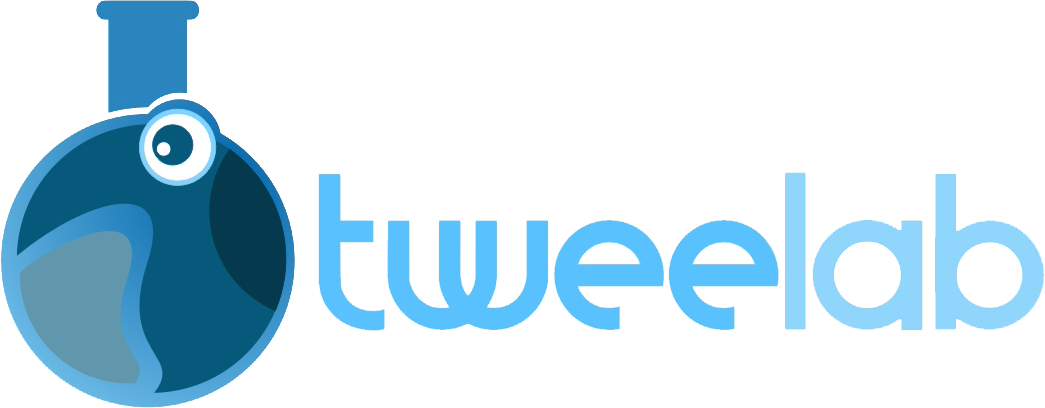The pursuit of online entrepreneurship has led many individuals to explore the prospect of starting a blog. This endeavor offers potential financial gains by capitalizing on market demand and audience engagement.
Selecting a profitable niche, ensuring consistent content production, and establishing credibility are critical steps in this process.
Successful monetization strategies involve leveraging advertising platforms, offering paid subscriptions or digital products, engaging in affiliate marketing, publishing sponsored content, and providing consulting services.
By adhering to these principles, novice bloggers can effectively initiate and profit from their blogs.
Choose a Blogging Platform

The process of choosing a blogging platform is an important step in starting a blog, as it determines the functionality and customization options available for creating and managing content. When considering how to start a blog for beginners, it is crucial to select a platform that aligns with your goals and objectives.
There are several popular blogging platforms to choose from, each offering unique features and benefits. One key factor to consider when selecting a blogging platform is its suitability for profitable blog niches. Certain platforms may offer better support for specific niches, such as fashion, travel, or technology. It is essential to research and identify which platforms are most commonly used within your desired niche.
Another aspect to consider when choosing a blogging platform is the availability of income opportunities. Some platforms offer built-in monetization options, such as advertising programs or affiliate marketing integrations. These features can be valuable for bloggers looking to generate income from their content.
Furthermore, content marketing tips should also be taken into account when selecting a blogging platform. Look for platforms that offer robust SEO techniques for bloggers, including customizable meta tags, URL structures, and sitemaps. These features can help optimize your blog’s visibility on search engines and attract organic traffic.
Pick a Hosting Platform

One important consideration when selecting a hosting platform is the level of technical support provided. The hosting platform plays a crucial role in ensuring that your blog is accessible and performs optimally. Technical issues can arise at any time, such as server downtime or website errors, and having reliable technical support is essential for resolving these issues quickly.
When evaluating hosting platforms, it is important to consider the types of technical support available. Some platforms offer 24/7 customer support through various channels such as live chat, phone, or email. This allows you to reach out for assistance whenever you encounter a problem.
Additionally, it is beneficial to choose a hosting platform that provides knowledgeable and responsive technical support staff. These experts should be able to address your queries promptly and provide effective solutions. Look for platforms that have a reputation for excellent customer service and positive reviews regarding their technical support team.
Furthermore, consider whether the hosting platform offers self-help resources such as knowledge bases or forums where you can find answers to common questions or troubleshoot issues independently.
Overall, selecting a hosting platform with strong technical support ensures that your blogging journey will be smoother by minimizing disruptions caused by technical difficulties and providing timely resolutions when problems do occur.
Find The Right Niche

When finding the right niche, it is crucial to conduct thorough research and analysis to identify profitable topics that align with interests and target audience. Selecting a niche that caters to one’s passion can provide motivation and enhance the quality of content produced. Additionally, understanding the target audience is essential as it allows bloggers to create content that resonates with their readers, increasing engagement and loyalty.
To determine profitable topics within a chosen niche, comprehensive market research is necessary. This includes analyzing competitors’ blogs to identify popular themes and gaps in existing content. By filling these gaps or providing unique perspectives on popular topics, bloggers can attract a larger audience.
Understanding keyword research techniques is another critical aspect of finding profitable niches. Utilizing tools like Google Keyword Planner or SEMrush enables bloggers to identify keywords with high search volumes but low competition levels. Incorporating these keywords into blog posts can improve search engine rankings and increase organic traffic.
Furthermore, staying updated with emerging trends within the chosen niche can help bloggers stay ahead of the curve. Following industry influencers, subscribing to relevant newsletters, and actively participating in online communities are effective ways of staying informed about new developments.
Select a Blog Name and Domain

Selecting a blog name and domain requires careful consideration of branding, relevance to the chosen niche, and availability for registration.
The blog name is an important aspect of the overall branding strategy as it represents the identity and purpose of the blog. It should be unique, memorable, and reflect the content that will be featured on the blog. The name should also align with the target audience and their interests to ensure maximum engagement.
In addition to branding considerations, relevance to the chosen niche is crucial for attracting a specific audience. The blog name should provide a clear indication of what readers can expect from the content. A relevant name can help establish credibility and attract like-minded individuals who are interested in the same subject matter.
Availability for registration is another essential factor when selecting a blog name and domain. It is important to check if the desired domain is already registered or if there are any trademark restrictions that could potentially lead to legal issues in the future. Availability ensures that there are no conflicts or confusion among similar blogs or websites.
Overall, selecting a blog name and domain involves thoughtful decision-making regarding branding, relevance to the niche, and availability for registration. By considering these factors carefully, bloggers can create a strong online presence that resonates with their target audience while avoiding potential legal complications or competition within their chosen niche.
Set up and Design Your Blog

Setting up and designing a blog involves creating an aesthetically appealing and user-friendly layout that enhances the overall user experience. The design of a blog plays a crucial role in attracting and retaining readers, as it sets the tone for the content presented. A visually pleasing layout with organized sections, clear navigation menus, and intuitive features can improve usability and help visitors find what they are looking for easily.
To begin setting up a blog, one must first choose a blogging platform that suits their needs. Popular options include WordPress, Blogger, and Tumblr, each offering different features and customization options. Once the platform is selected, users can choose from numerous templates or themes to determine the overall look of their blog.
Designing a blog involves selecting colors, fonts, images, and other visual elements that align with the desired aesthetic. It is important to strike a balance between creativity and readability to ensure that both the content and design are harmonious. Additionally, incorporating responsive design principles ensures that the blog is accessible across various devices.
Brainstorm Blog Topics

One crucial step in the process of creating a blog is brainstorming a variety of potential topics to cover. This initial phase is essential as it sets the foundation for the blog’s content and determines its direction. When brainstorming blog topics, bloggers should consider their target audience, personal interests, and current trends in their niche. By focusing on these factors, bloggers can ensure that their content will resonate with readers and attract a consistent following.
To begin the brainstorming process, bloggers can start by identifying their target audience’s needs, interests, and pain points. This could be achieved through market research or by engaging with potential readers through surveys or social media platforms. Additionally, bloggers should reflect on their own passions and expertise to find areas where they can provide valuable insights.
Furthermore, keeping up-to-date with current trends and popular topics within the chosen niche is crucial for attracting an engaged audience. This could involve monitoring industry news, attending conferences or webinars, or following influential figures in the field.
Write Your First Blog Post

When writing your first blog post, it is important to establish a clear and engaging introduction that captures the attention of your readers. A well-crafted introduction sets the tone for the entire post and entices readers to continue reading.
To achieve this, consider the following strategies:
- Start with a compelling hook: Grab your readers’ attention right from the beginning by using an interesting fact, anecdote, or thought-provoking question.
- Clearly state the purpose: Let your readers know what they can expect from reading your post. This helps them understand how it relates to their interests or needs.
- Provide a brief outline: Give your readers an overview of what will be covered in the post. This helps them navigate through the content and stay engaged.
Create an Editorial Calendar

To effectively manage and organize your blog content, creating an editorial calendar is a crucial step in ensuring consistent publication and maintaining a strategic approach to content creation. An editorial calendar serves as a roadmap for your blog, outlining the topics you plan to cover and when you plan to publish them. By having a clear plan in place, you can avoid last-minute scrambling for ideas and ensure that your content aligns with your overall goals and objectives.
An editorial calendar allows you to take a proactive approach to content creation by scheduling posts in advance. This not only helps you stay organized but also ensures that you have a steady stream of fresh content for your readers. Additionally, it allows you to strategically distribute different types of content throughout the month or year, such as informative articles, interviews, or guest posts.
Furthermore, an editorial calendar enables you to identify any gaps or overlaps in your content strategy. It provides a visual overview of what topics have been covered and what areas may need further exploration. This allows you to maintain variety in your content while avoiding redundancy.
Promote Your Blog

Promoting your blog is an essential aspect of gaining visibility and attracting a larger audience to your content. In order to effectively promote your blog, there are several strategies that can be employed:
- Utilize social media platforms: Social media provides a powerful tool for promoting your blog and reaching a wider audience. By sharing your blog posts on platforms such as Twitter, Facebook, and Instagram, you can increase the visibility of your content and attract more readers.
- Engage with other bloggers: Building relationships with other bloggers in your niche can be beneficial for promoting your blog. By collaborating on guest posts or participating in blogging communities, you can tap into their existing audience and gain exposure for your own content.
- Optimize search engine optimization (SEO): Implementing SEO techniques can help improve the visibility of your blog in search engine results. By optimizing keywords, meta tags, and headers, you can increase the chances of your blog being discovered by users searching for relevant topics.
Make Money Blogging

One effective way to generate income from blogging is by implementing various monetization strategies. Bloggers have several options for monetizing their blogs, including advertising, affiliate marketing, sponsored content, and selling digital products or services.
Advertising is a common method where bloggers can partner with ad networks like Google AdSense to display ads on their site. This allows them to earn revenue based on clicks or impressions generated by the ads.
Another strategy is affiliate marketing, where bloggers promote products or services and earn a commission for each sale made through their referral link.
Sponsored content involves partnering with brands to create posts that promote their products or services in exchange for payment. This enables bloggers to leverage their audience and influence to generate income.
Additionally, bloggers can sell digital products such as e-books, online courses, or membership subscriptions directly from their blog.
To successfully implement these strategies, it is important for bloggers to build a strong online presence and establish trust with their audience. They should also track and analyze the performance of their blog using tools like Google Analytics to optimize their monetization efforts.
Overall, by diversifying their monetization strategies and consistently delivering valuable content, bloggers can effectively generate income from their blogs while providing value to their readership.
Key Takeaways: How to Start a Blog for Beginners
- Research and compare platforms to find one that aligns with your technical skills and goals.
- Prioritize reliable hosting to ensure your blog’s stability and loading speed.
- Identify your passions and expertise to define your niche.
- Ensure your domain name represents your brand and is memorable for readers.
- Customize your blog’s design to match your branding and niche.
- Address common questions, challenges, and interests of your target audience.
- Provide valuable insights, solutions, or stories in your content.
- Plan and schedule your blog posts in advance for consistency.
- Utilize social media platforms to share your content and connect with your audience.
- Provide genuine value to your readers to establish trust and credibility.
Frequently Asked Questions
How much technical knowledge do I need to start a blog?
Technical knowledge required to start a blog varies depending on the platform and customization desired. Basic skills like domain registration, website setup, and content publishing are essential. Platforms like WordPress offer user-friendly interfaces, minimizing the need for extensive coding expertise.
How often should I publish new content on my blog?
Publishing new content on a blog should be done consistently to keep readers engaged and attract new ones. The frequency depends on factors such as niche, target audience, and available resources, but aim for at least once a week or more for optimal results.
How can I increase organic traffic to my blog?
To increase organic traffic to a blog, focus on search engine optimization (SEO) strategies such as keyword research, optimizing meta tags and headings, creating high-quality content, building backlinks, and promoting through social media.
What are some effective ways to engage with my blog audience?
To effectively engage with a blog audience, bloggers can employ various strategies. These include encouraging comments and discussions, responding to reader feedback, conducting surveys or polls, hosting contests or giveaways, and featuring guest posts or interviews to promote interaction and build a sense of community.
How long does it typically take to start making money from a blog?
Typically, it takes several months to a year or more to start making money from a blog. The timeline depends on factors such as the quality of your content, marketing efforts, niche competitiveness, and audience engagement.
Final Thoughts
Starting a blog for beginners can be a rewarding venture with the potential to make money online. By choosing a profitable niche, scaling blog content, and building a strong reputation through guest blogging and collaborations, beginners can attract more readers and establish themselves in the blogging world.
Monetizing strategies such as promoting and growing the blog, creating a newsletter, and exploring creative avenues like podcasts or webinars are essential to generate income. One interesting statistic is that bloggers who use affiliate marketing as a monetization strategy earn an average of $300 per month.
With dedication and consistency, beginners can effectively start and monetize their blogs.

